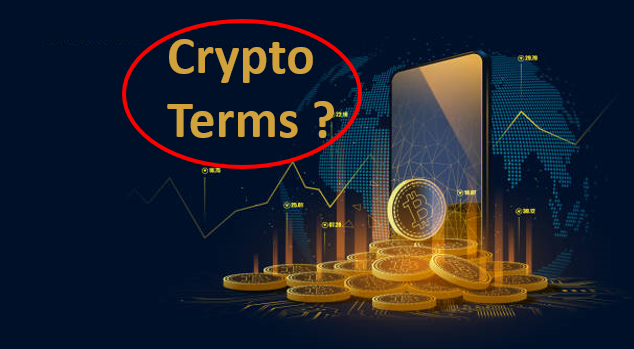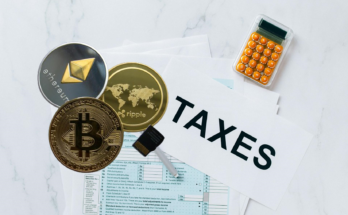Cryptocurrency is a revolutionary digital asset class that has transformed how we think about money and finance. Understanding the terminology is crucial whether you’re a seasoned crypto trader or just dipping your toes into digital currencies. The cryptocurrency space has its own unique set of terms and jargon that can be confusing to newcomers. This article will explain the essential cryptocurrency terms you need to know. By the end of this read, you’ll be better equipped to navigate the world of cryptocurrencies with confidence and clarity.
Cryptocurrency Basics
At its core, a cryptocurrency is a digital or virtual currency that uses cryptography for security. Unlike traditional currencies, cryptocurrencies operate on decentralized networks based on blockchain technology.
Blockchain is the underlying technology of most cryptocurrencies. It’s a decentralized and distributed ledger that records all transactions across a network of computers. Once a transaction is added to the blockchain, it becomes immutable.
Key Cryptocurrency Terms
1. Wallet
A cryptocurrency wallet is a digital tool that stores, sends, and receives cryptocurrencies. It comes in various forms, including software wallets (online or mobile apps) and hardware wallets (physical devices).
2. Private Key
A private key is a secret code that grants you access to your cryptocurrency holdings. It should be kept secure and confidential, as anyone with access to it can control your funds.
3. Public Key
A public key is derived from your private key and serves as your wallet’s address. It’s used to receive cryptocurrency transactions from other users.
4. Address
A cryptocurrency address is a unique string of characters generated from your public key. It’s what you share with others to receive payments.
5. Exchange
A cryptocurrency exchange is a digital platform where you can buy, sell, and trade cryptocurrencies. Popular exchanges include Coinbase, Binance, and Kraken.
6. Transaction
A cryptocurrency transaction is the process of transferring digital assets from one wallet to another. It typically involves a sender, a recipient, and the amount being transferred.
7. Mining
Mining is the process of validating and adding transactions to the blockchain. Miners use computational power to solve complex mathematical puzzles, and in return, they are rewarded with cryptocurrency.
8. HODL
HODL is a humorous misspelling of “hold.” It originated from a typo in a Bitcoin forum post and is now used to encourage long-term investment rather than selling during price fluctuations.
9. FOMO and FUD
FOMO stands for “Fear of Missing Out,” and FUD stands for “Fear, Uncertainty, and Doubt.” These terms describe emotional reactions and market sentiments that can influence cryptocurrency prices.
10. ICO and STO
Initial Coin Offering (ICO) and Security Token Offering (STO) are fundraising methods used by cryptocurrency projects to raise capital. ICOs involve the sale of tokens, while STOs offer security tokens backed by assets or profits.
11. KYC and AML
Know Your Customer (KYC) and Anti-Money Laundering (AML) are regulatory requirements that cryptocurrency exchanges and businesses must adhere to. They involve verifying the identities of users and preventing illegal activities.
12. SEC
The U.S. Securities and Exchange Commission (SEC) is a regulatory body responsible for overseeing securities and some cryptocurrency activities in the United States.
13. Altcoin
An altcoin, short for “alternative coin,” refers to any cryptocurrency other than Bitcoin. There are thousands of altcoins, each with its unique features and purposes.
14. Wallet Address
A wallet address is a string of characters representing a cryptocurrency transaction destination. It’s like a bank account number but specific to cryptocurrencies.
15. Block
A block is a collection of transactions on a blockchain. Blocks are linked together sequentially, forming the blockchain.
16. Fork
A fork occurs when there is a change in the underlying rules of a blockchain. It can lead to the creation of a new cryptocurrency (hard fork) or a software upgrade (soft fork).
17. Node
A node is a computer on a blockchain network that helps maintain the network by validating and relaying transactions. There are full nodes (which store the entire blockchain) and light nodes (which rely on full nodes for information).
18. Cryptocurrency Market Cap
Market capitalization, or market cap, is the total value of a cryptocurrency. It’s calculated by multiplying the current price of one coin by the total number of coins in circulation.
19. Whale
Whales are individuals or entities that hold a significant amount of a particular cryptocurrency. Their large holdings can influence market prices and trends.
20. ATH and ATL
ATH stands for “All-Time High,” which is the highest price ever reached by a cryptocurrency. ATL stands for “All-Time Low,” the lowest price ever reached.
21. Pump and Dump
A pump and dump scheme involves artificially inflating the price of a cryptocurrency (pump) to attract unsuspecting investors, only to sell off the inflated assets at a profit (dump).
22. Peer-to-Peer (P2P)
Peer-to-peer refers to transactions that occur directly between users without the need for intermediaries like banks. Many cryptocurrency transactions are P2P.
23. Token
Tokens are digital assets built on existing blockchains like Ethereum. They often represent ownership in a project or access to its services.
24. DeFi
Decentralized Finance (DeFi) refers to financial services built on blockchain technology, such as lending and trading, without traditional intermediaries like banks.
25. NFT
Non-Fungible Tokens (NFTs) are unique digital assets that represent ownership of a specific item or piece of content, like digital art or collectibles.
Conclusion
Cryptocurrency is an exciting and rapidly evolving space, and understanding the terminology is vital in becoming a confident participant. While this glossary covers essential terms, there’s always more to learn as the cryptocurrency ecosystem expands and innovates. By familiarizing yourself with these key terms, you’re better equipped to engage with cryptocurrencies, make informed decisions, and explore their opportunities.
So, whether discussing blockchain with fellow enthusiasts, navigating the intricacies of cryptocurrency wallets, or considering your next investment, this glossary will serve as your trusty guide in the dynamic world of digital currencies.




